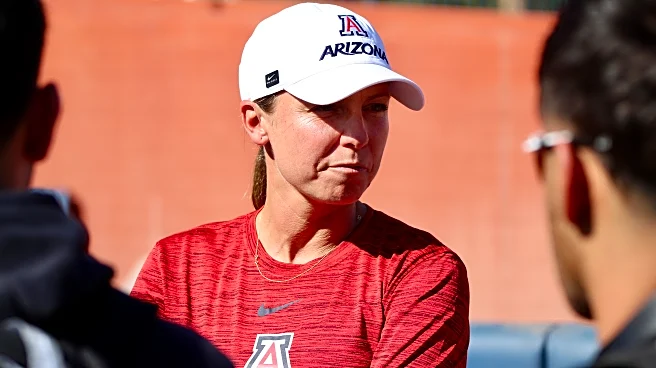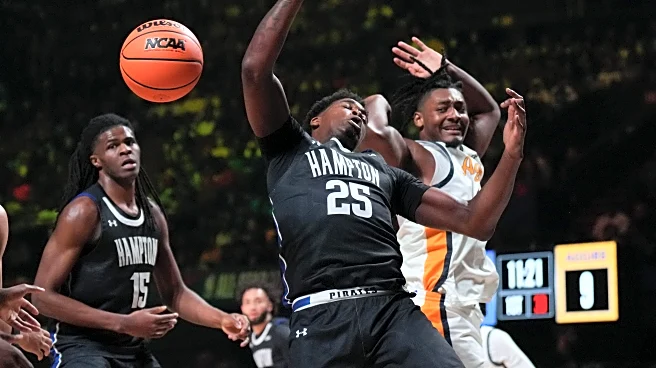“I wanted to write you a glad song, but I didn’t have time, so I wrote you a sad one”
It’s always a risk to start writing with someone else’s quote, since that person probably said it better than you ever could. Still, Franz Nicolay’s bitter parody of Mark Twain may be the best way to sum up the history of the Montreal Expos, a franchise that defined a culture yet never could quite make it. That’s the very subject explored in Who Killed The Montreal Expos, Netflix’s latest sports documentary.
America’s
premiere streaming service has an impossible task — Romans could not understand never being Roman, even less so being Quebecois. The unique sub-national identity that makes up some quarter of the country is deeply explored by director Jean-François Poisson, and indeed choosing a Quebec filmmaker is one of the bedrock choices of the project. I do not say this to be condescending, but I struggle to imagine that most Americans could understand the Quebec identity — surely many Canadians couldn’t.
The dogged individualism of the Old West with the resistance energy of New Hampshire and the desperate preservation energy of the Cajun might just add up to the culture of Quebec, a last refuge of French colonialism on a continent more inclined to Spanish and English. That a good chunk of the film’s dialogue is in French, with no apologies or concessions—aside from Netflix trying to force a distracting dub on you if you don’t change audio settings—underlines how key the identity is to this whole enterprise. I’m surprised The Hockey Sweater, perhaps the keystone piece of Canadian literature and originally published under the title An Abominable Maple Leaf on Ice, appears just once in the picture.
That the Expos were awarded a franchise ahead of the 1969 season itself is a little bit of a joke. The Three Wise Men, a trio of Quebec federalists including Pierre Trudeau, had taken up office in Ottawa determined to hold the nation together against a strain of Quebec nationalism, a coincidence yet a seemingly-divine piece of irony of French Canada being anointed the then-sole representation in Major League Baseball.
Here is where the documentary begins to lose some steam, given its 90-minute runtime. This would probably have been better served as a miniseries of some kind, giving air to Quebec culture, the mess of state-held wealth that triggered the investment crisis, and indeed an entire episode to Mr. Jeffrey Loria.
As we get into the title question, it’s impossible not to talk about the 1994 strike. The Expos were the top dog, running down the mighty ‘90s Braves behind a chorus of young players all hitting their stride. It’s one of the great, perhaps the great what-ifs in MLB history: Could the ascendant Expos have met Paul O’Neill and Don Mattingly’s resurgent Yankees in the postseason in a battle of teams destined to dominate for the next 10 years? Instead, the World Series was called off and short-term financials drove the greatest sell-off in baseball history, including the Marlins twice over.
It may be too grandiose to suggest the documentary tells us too much about capitalism in the 21st century, that month-to-month or even year-to-year cash flows are the ultimate decider in strategy (especially given the challenges of getting a much-needed new ballpark built to replace the odious Olympic Stadium). One outside event and the Expos go from a potential dynasty to basement dwellers. Yet as the team descends into financial trouble, both the provincial and federal governments begin to run surpluses at the expense of what was viewed as a civic insitute.
As the Expos themselves began to die in the late ‘90s, partners were too frightened to add capital. “The public is so anti-Expos, investing further would make them dislike me,”… ignoring the idea that when the Expos were good, Montreal loved them at a rate that would challenge the NHL’s Canadiens, a statement likely impossible in any comparable city in North America. Despite the civic responsibility, the perceived short- term market had turned against the boys in Olympic Stadium, which only ever lead to a long-term dismantling of the project.
I’m not calling for the nationalization of Major League Baseball — or at least, this isn’t the website for it. I am merely saying that a baseball team is more than a balance sheet, more than an income statement and instead a statement of identity. Sports teams do carry some civic responsibility; what’s the public awareness of San Antonio before and after the Spurs redefined basketball in the 2000s? Why do the Yankees and Dodgers continue to sell hats 7,000 miles from their stadiums?
The answer is gross, but perhaps, nothing breeds excess like success. The reason the Yankees are a name brand the world around is because they capitalized on mass media — specifically cable — at the time they were most dominant. Now, the Dodgers are the premier franchise in baseball, not just because they have the biggest stars but because they put those biggest stars in front of the camera and the smartphone.
What killed the Montreal Expos was forgetting that truth, or at least ignoring it. Along came a spider, a Francophile Loria that was never particularly interest in the city or the culture. With him came step-son and former Wall Streeter David Samson, the closest thing the film tabs as a true villain. To Netflix’s credit, they give Samson a real shot at defending himself — one of my biggest issues with The Last Dance, for example, was the way Jerry Krause was pilloried while being dead and unable to answer any of the criticism.
Samson re-iterates that the strike alone didn’t ruin the Expos as a franchise, that there were multiple factors, and while he’s correct he conveniently leaves out that he was the author of several himself. As the American Businessman, Samson occupied a critical role in deliberately undercapitalizing the Expos’ market and laying the groundwork for the slow bleed to DC. While all the charm that got Samson voted off Survivor in his first week is on display, I would have liked the film—or again, the possible miniseries—to delve into what a lucrative career the one-time baseball exec has had since gutting the Expos and Marlins, but then the positive outcomes for the slimy and capital-obsessed never really get discussed.
Overarchingly, Who Killed the Montreal Expos deals with the pain the city, province and culture felt around an institution that was never allowed to flourish. Baseball let the club down in 1994, ownership could never build continual success, the government was unable to back. Moreover, we return to this idea that these teams, these brands, are more than just an investment vehicle, they are part of the civic structure and the goodwill the public puts into them reflects that. For Montreal, so often Canada’s second city, to be the first awarded an MLB club was in itself a miracle.
It’s funny that this documentary came out at the same time as the Toronto Blue Jays, now the sole Major League team outside the United States, chase down their first World Series in more than 30 years. Even more fitting is the apparent death of the closest economic partnership in the history of capitalism, as Canada is left to refind its footing on the global stage. The groundswell of national pride, whether I like it or not, must have mirrored the feeling of Montrealers even as labor disruptions loomed 31 years ago.
Postscript: It’s always amusing that Americans can’t pronounce Canadian cities. Michael Kay is in Toronto four times a year and still thinks it’s a three-syllable word, while MON-TREE-ALL seems to be standard fare for the American Anglophones Netflix has speak.
















